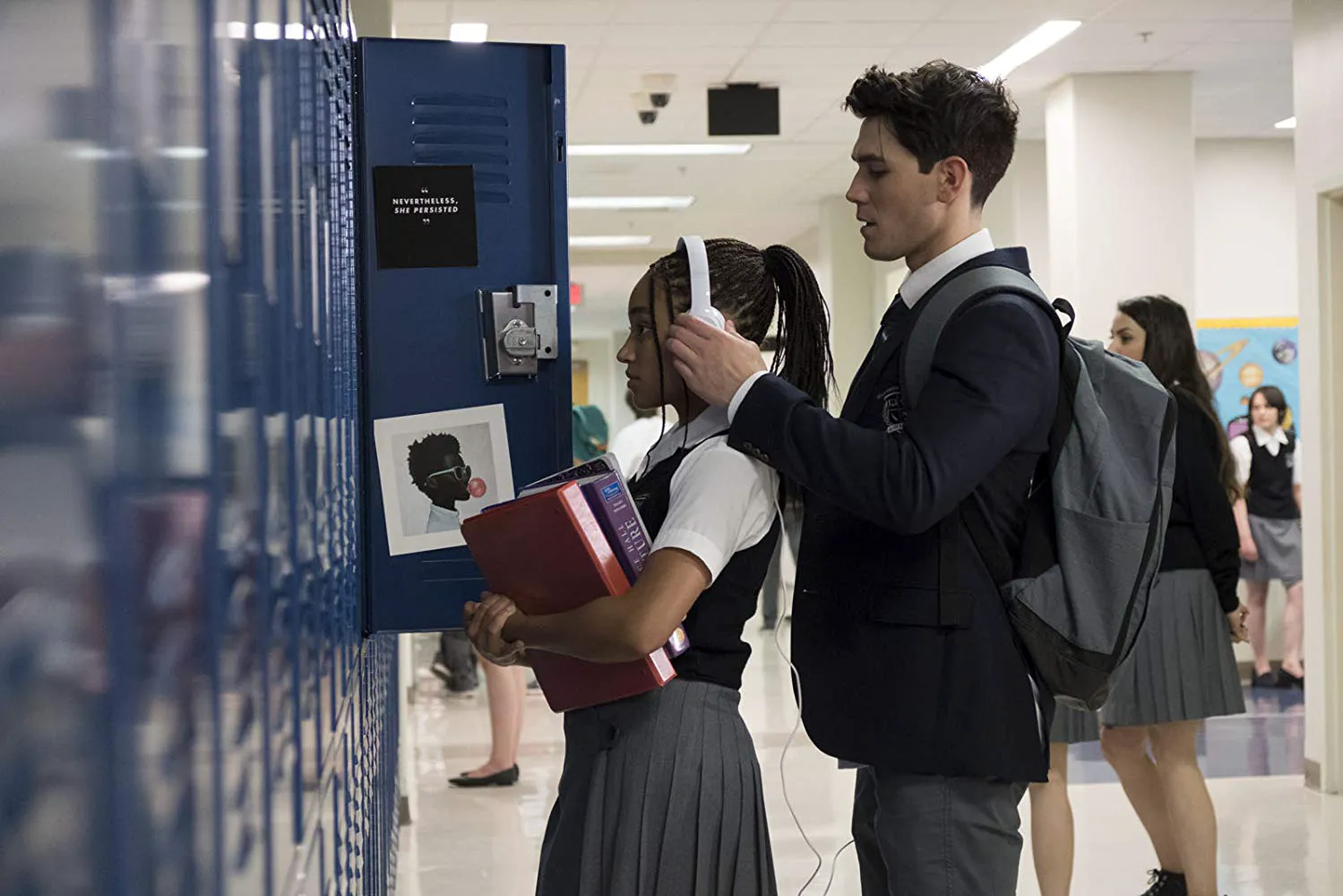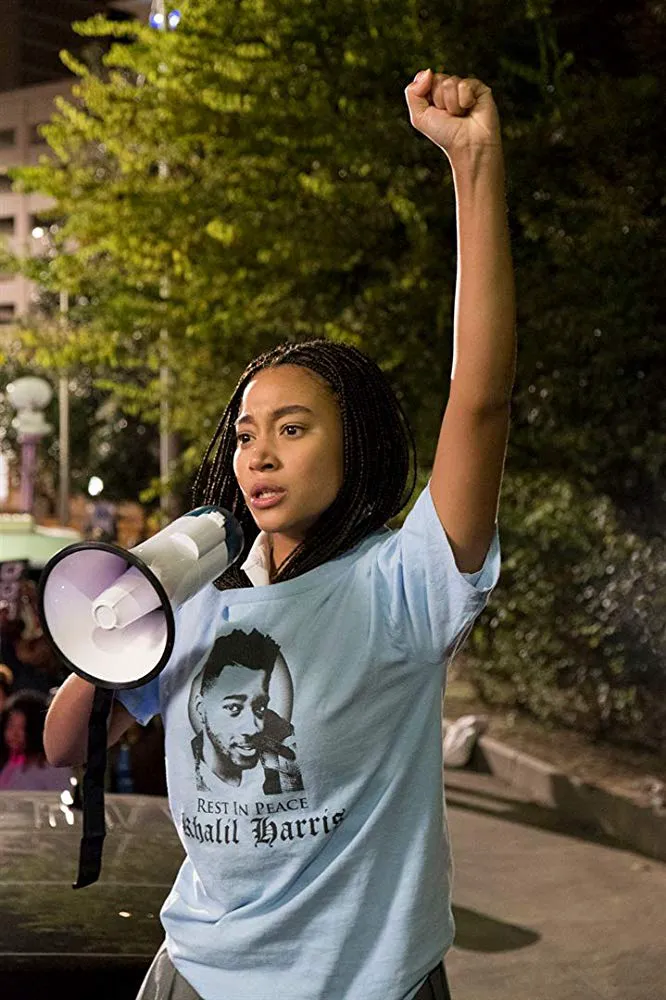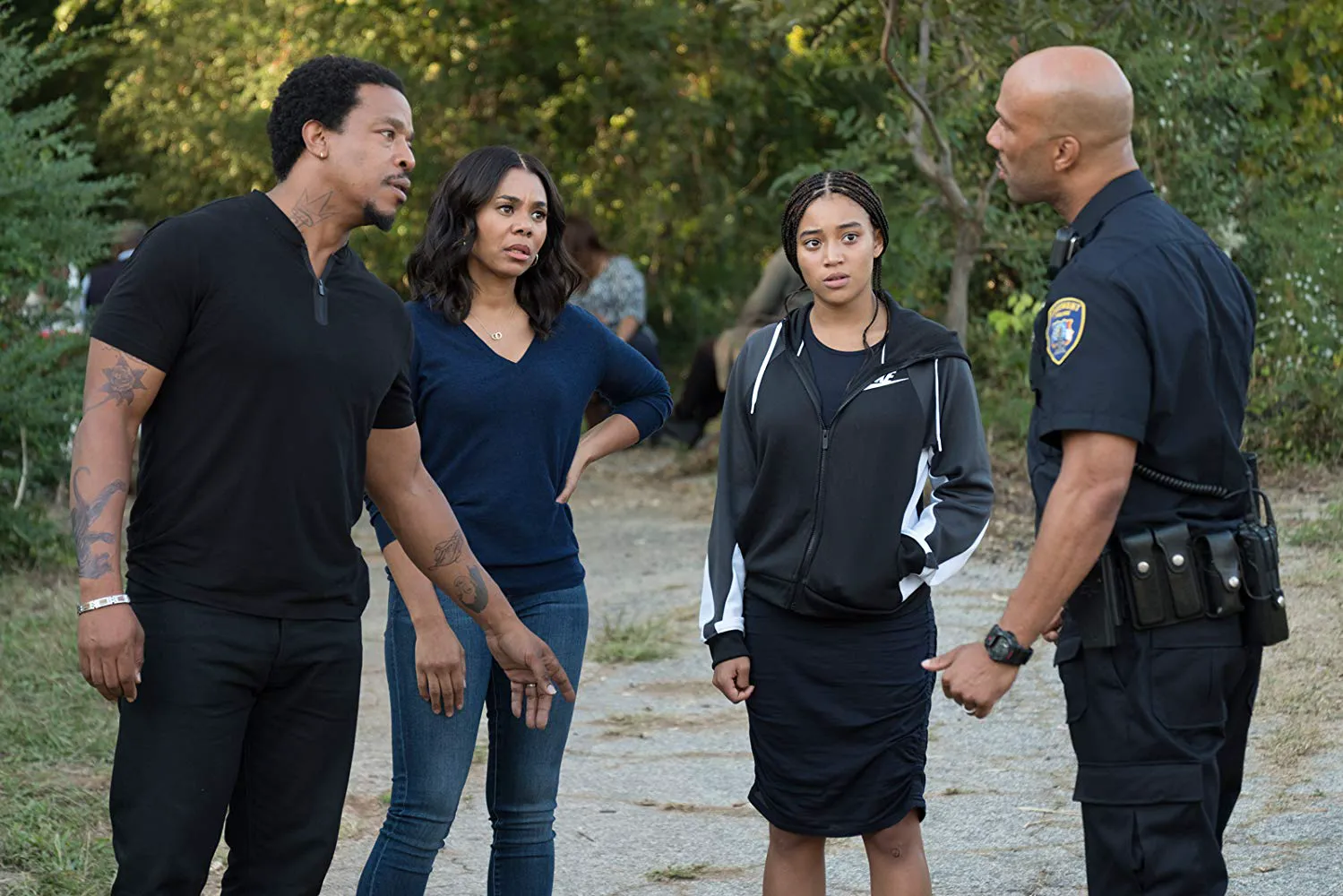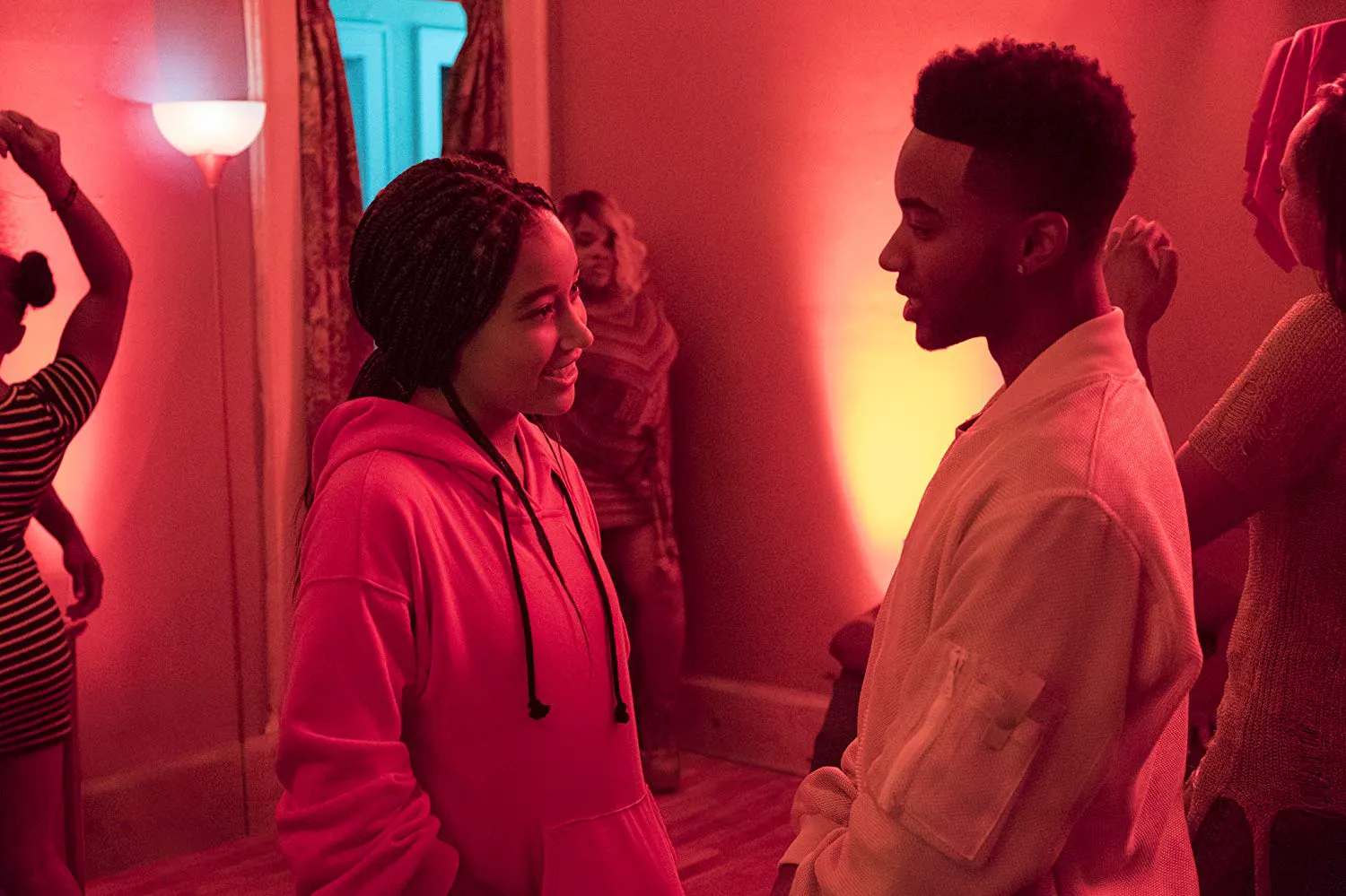A Simplistic and Overly Earnest Take on Black Lives Matter
This film tackles the weighty issues of police brutality against African Americans and the Black Lives Matter movement, but does so with a heavy hand and a lack of nuance.
The protagonist, a high schooler named Starr (likely a nod to the classic Boris Gardiner song), lives a bifurcated existence. She navigates two distinct worlds: her family, childhood friends, and familiar surroundings in a low-income neighborhood, and her predominantly white, affluent prep school, complete with white friends and a white boyfriend. After one such transition from the latter to the former, Starr attends a local party where she reconnects with her childhood friend and first love, Khalil. Khalil, it seems, has taken a less-than-ideal path, dealing drugs to make ends meet. On their way home, a white police officer pulls them over and, mistaking a comb for a weapon, fatally shoots Khalil. Starr’s parallel worlds collide, and she finds herself compelled to fight against the blatant injustice.

2018 was a significant year for American social commentary in film. Movies like “Black Panther,” “Sorry to Bother You,” “BlacKkKlansman,” and “Blindspotting” explored the African American experience with varying degrees of success. Now comes the adaptation of a bestselling young adult novel, a darling of progressive youth. Judging by the overwhelmingly positive reviews from Western critics, the film has struck a chord with American society, addressing important issues through the lens of adolescence. However, removing the rose-tinted glasses of “message over matter” reveals “The Hate U Give” to be a surprisingly flawed film.

Lack of Subtlety
The filmmakers seem to have meticulously considered their target audience, opting for a risk-averse approach that spoon-feeds the narrative. This is evident in the film’s lack of subtlety. For instance, the color grading in the “ghetto” scenes is warm and inviting, while the world of the “hypocritical whites” (including the school and the homes of Starr’s friends and boyfriend) is washed out and cold. The characters are similarly divided into neat categories of good and bad. We have the father, a former criminal who served time to escape the game and settle down. Then there’s the murdered friend, a drug dealer driven to desperate measures by his grandmother’s cancer and his mother’s addiction.

On the other side of the divide is the police officer, surprisingly portrayed not as a racist, but as a victim of prejudice. There’s also the stereotypical best friend who makes racially insensitive remarks and later sympathizes with the officer’s family. The true villain isn’t the systemic racism, but King, the local gang leader whose drug trade is threatened by unwanted attention from the press and police. To ensure the audience recognizes him as the antagonist (short of giving him horns and a tail), the writers add another layer: King killed Starr’s best friend in a shootout when they were children playing Harry Potter. Starr, still haunted by the memory and clutching her friend’s wand, decides to turn King in, declaring that “snitch rules don’t apply anymore.”

Missed Opportunities
It’s difficult to find anything truly redeeming in “The Hate U Give.” The actors occasionally try to inject emotion into their performances, timed to the melodramatic score. The film’s inflated $23 million budget seems to have been spent on them, considering that the combined budgets of “Blindspotting,” “Sorry to Bother You,” and “BlacKkKlansman” were the same. Those films, however, were made with talent and humor, tackling racial tensions with wit. “The Hate U Give,” in contrast, lacks irony and feels like an old-fashioned morality tale, weighed down by its own seriousness. The heroine’s brother is named Seven (after the seventh point of the Black Panther Party’s platform, calling for an end to police brutality), and the climax involves a “Mexican standoff” between Starr’s father, King, and her seven-year-old (!) brother.sec
When the heroine, with a blissful expression, retrieves Khalil’s wand from his room and promises in another grandiose monologue to become a lawyer and fight injustice, one sadly realizes that even the worst films can succeed, especially when their socio-political agenda is delivered with the subtlety of a sledgehammer.